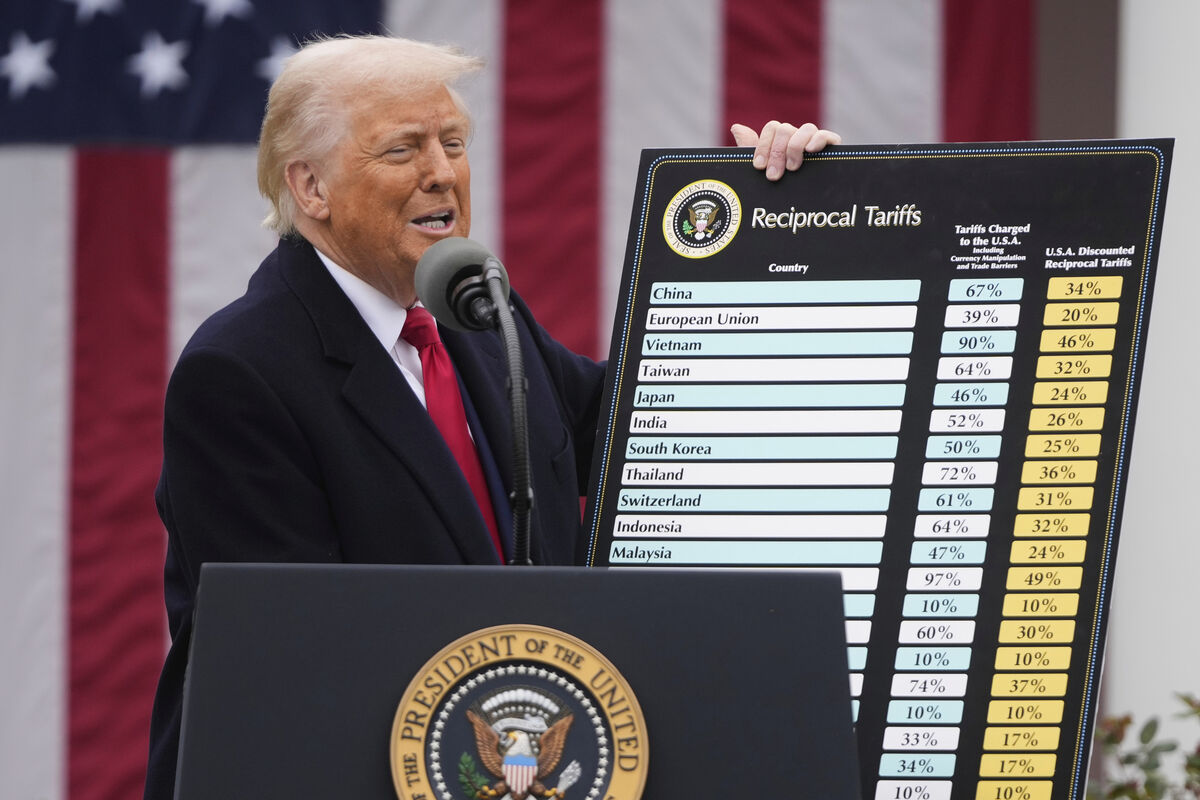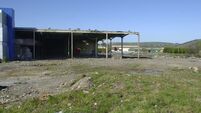Safeguarding jobs 'must be prioritised' in wake of US tariffs as risk of global trade war 'very real'

President Donald Trump speaks during an event to announce new tariffs in the Rose Garden at the White House, Wednesday, April 2, 2025, in Washington. (AP Photo/Mark Schiefelbein)
US President Donald Trump's sweeping tariffs on EU imports will be a drag on manufacturing output and gross domestic product (GDP) growth in Ireland, with fears that punitive trade measures will also hurt the labour market and domestic demand.
Wednesday evening saw the US President slap 20% tariffs on all imports from the EU as part of a series of measures that will hit Irish exports.
However, pharmaceuticals, a key export for Ireland, will not be included in this for now, offering at least a temporary reprieve for Cork's booming pharmaceutical sector.
Reacting to the tariff announcement, CEO of Cork Chamber Conor Healy urged the Government to prioritise measures protecting jobs and mitigating the impact of punitive trade policies.
"The level of exposure will vary across sectors and businesses, from large multinationals to SMEs. Measures to mitigate the impact and safeguard jobs must be prioritised. In the short term, continued support for SMEs is essential," said Mr Healy.
“Additionally, support measures for impacted sectors will be crucial in helping the most vulnerable businesses manage cash flow, restructure operations and maintain employment while developing alternative markets.”
“Ireland’s attractiveness as a place to live, work, and invest must remain a top priority. Tariffs are not a constructive tool for economic progress. Now more than ever, we need a unified European response that works to de-escalate trade tensions and protect economic stability."
While pharmaceutical products remain exempt for now, the future of the sector remains clouded in uncertainty.

Speaking on Ireland's exposure to US tariffs, AIB Chief Economist David McNamara said: "With a third of Irish goods exports going to the US, the tariff could yield a hit to demand for Irish exports from the US.
"Notably for Ireland, the White House communication indicates that pharmaceuticals will be excluded from this round of tariffs. This gives a reprieve for now, given the importance of the sector in Ireland’s export mix, but the threat of future tariffs will add to the uncertainty."
In 2024, Ireland's goods exports to the US were totalled €73bn, according to the Central Statistics Office (CSO), of which 80% was in the pharmaceuticals sector. Ireland accounts for about a fifth of total US pharma imports.
"It remains unclear how the increased costs will distribute between US consumers and Irish-based producers, depending on the elasticity of demand and currency movements," Mr McNamara noted.
"Given the ‘necessity’ status of pharma products – our main export to the US, a more limited impact might be expected if tariffs are eventually levied here, particularly given the long-lead in times for firms to potentially shift production to the US – a stated goal of President Trump."
Recent forecasts from the Economic and Social Research Institute (ESRI) expected Irish modified domestic demand (MDD) to increase by 3% in 2025 and 2.8% in 2026.
In its alternative scenario, however, which assumed 25% bilateral tariffs between the US and the EU for goods trade, MDD growth was revised to be 2.8% in 2025 and 2.1% in 2026.
“Tariffs are a double-edged sword; they harm the country that imposes them as well as the countries they are imposed on," said Dr Loretta O'Sullivan, partner and chief economist at EY Ireland.
"With the EU among others preparing countermeasures in the event that negotiations are not successful, the risk of a global trade war remains very real.
"While the Irish economy is facing all this from a position of strength, domestic policies to shore up competitiveness such as infrastructure investment will be very important in the period ahead, along with helping companies to diversify into new markets.”







